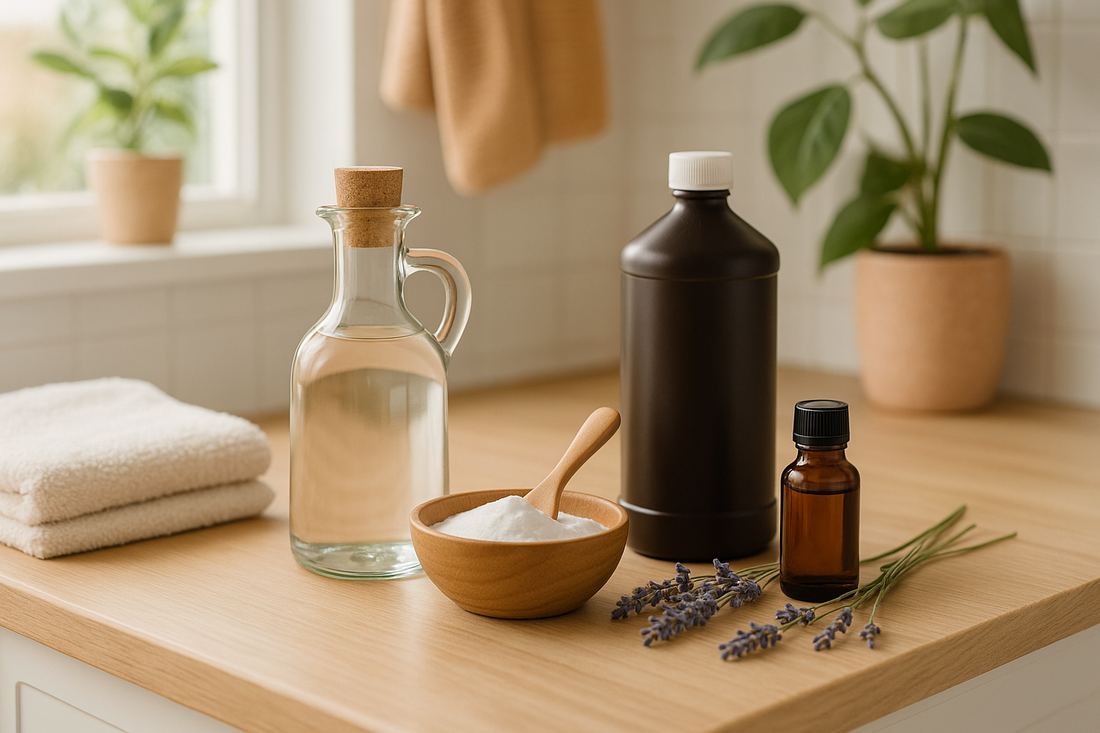
7 Safe and Effective Alternatives to Bleach for Daily Cleaning
Share
The Problem with Bleach
Bleach has long been a go-to for disinfecting and cleaning, especially in healthcare settings. However, it comes with a host of issues: toxic fumes, corrosiveness, and environmental concerns. In fact, the CDC points out that bleach can cause respiratory issues and skin irritation, especially in poorly ventilated spaces. (Source: CDC) This dependency on harsh chemicals is becoming less tenable as the demand for safer, sustainable solutions rises.
Why Switch to Bleach Alternatives?
Utilizing bleach alternatives not only fosters a healthier environment but also enhances the safety and well-being of both staff and clients in your facility. Safe cleaning products reduce exposure to harmful chemicals, protect the eco-system, and circumvent high PPE costs associated with hazardous materials. To upend the conventional cleaning paradigm, here are seven effective alternatives you should consider:
1. Hydrogen Peroxide
This powerhouse disinfectant is effective against a broad range of pathogens. It breaks down into water and oxygen, leaving no toxic residues. According to the EPA, hydrogen peroxide is effective for cleaning surfaces in hospitals while being non-toxic. (Source: EPA)
2. Vinegar
Vinegar is nature's cleaner. Its acetic acid content makes it effective at breaking down grime, killing pathogens, and deodorizing. While not as strong as bleach, vinegar is excellent for everyday cleaning tasks and poses minimal health risks. Use it for disinfecting bathrooms, kitchens, and more.
3. Baking Soda
As a scrubbing agent, baking soda neutralizes odors and can effectively combat stains. It’s especially beneficial in kitchens and bathrooms. When combined with vinegar, it creates a powerful cleaning reaction that can tackle tough stains without the toxins found in bleach.
4. Essential Oils
Essential oils like tea tree and lavender not only smell wonderful but also provide antimicrobial properties. Research indicates that oils like these can combat bacteria and viruses. (Source: NIH) Use them by adding a few drops to your homemade cleaning solutions.
5. Castile Soap
This vegetable-based soap is biodegradable, making it an excellent choice for both cleaning and ethical concern. It effectively removes dirt and grime while being gentle on the skin compared to bleach. Mixing it with water creates a simple but effective cleaning solution.
6. Olive Oil
Though not typically considered a go-to cleaner, olive oil can work as an excellent wood polish and cleaner. Its natural properties help maintain surfaces while providing shine without harmful chemicals.
7. CG Chemicals’ Non-Toxic & Eco-Friendly Cleaners
Lastly, consider integrating CG Chemicals’ specifically formulated eco-friendly cleaners into your routine. These products are designed to match or exceed bleach's disinfecting power while being entirely non-toxic and safe for both humans and the environment.
Making the Transition
Switching from bleach to these alternatives doesn’t have to happen overnight. Gradually introduce these alternatives in your cleaning regimen to assess effectiveness and ease of use. The long-term benefits—in terms of health, cost savings on PPE, and contribution to environmental well-being—far outweigh the short-term inconveniences.
Conclusion
In a world increasingly concerned with health and safety, it’s time to transcend reliance on bleach. The transition to safer cleaning methods doesn’t mean sacrificing effectiveness. These alternatives do the job—and do it better without compromise. Explore CG Chemicals’ range of non-toxic, eco-friendly cleaners today.
Shop now or contact us to learn more about our non-toxic cleaning products!
